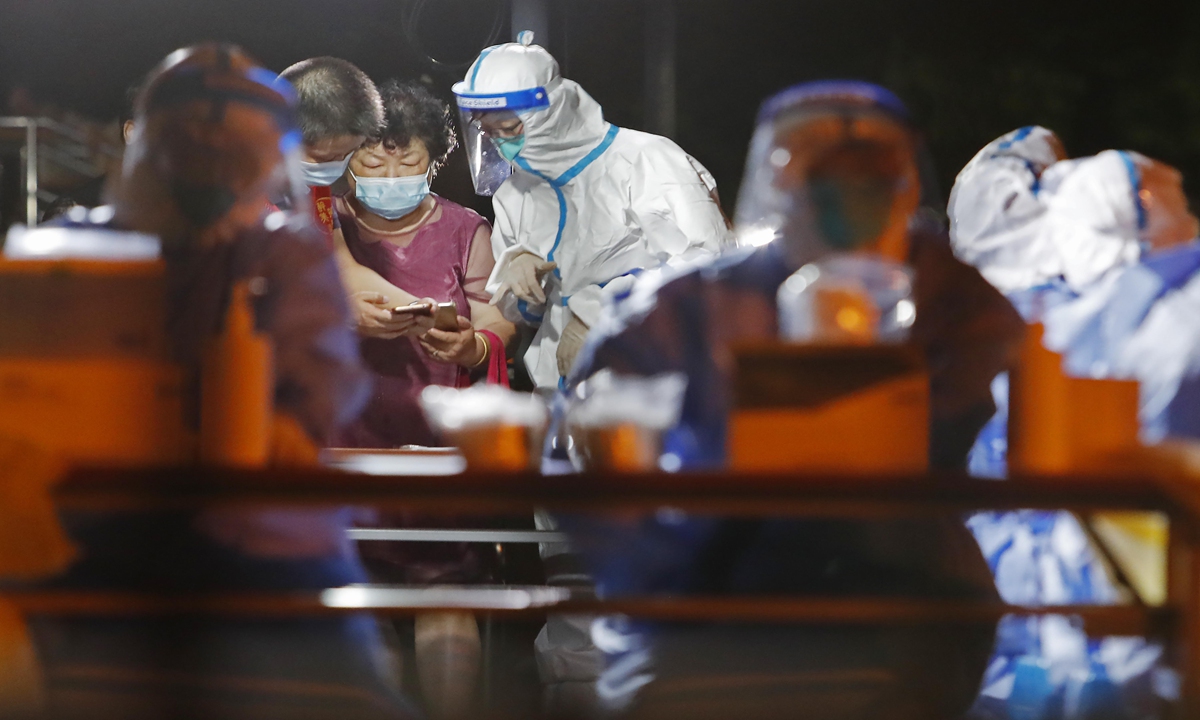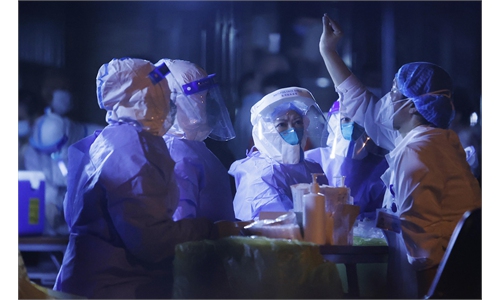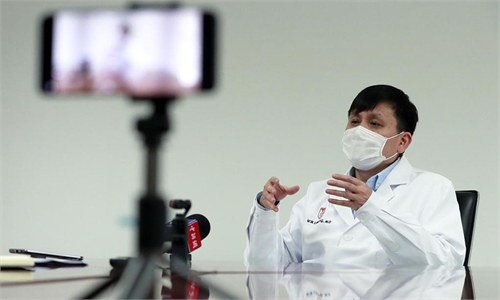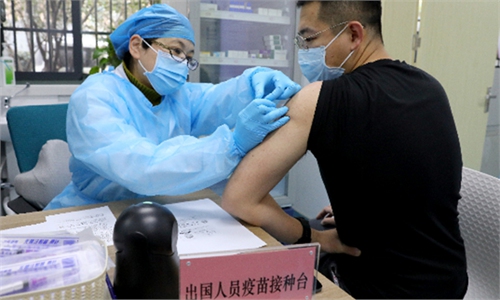COVID-19 vaccine breakthrough infections possible, but vaccination slows down virus spread: Zhang Wenhong

Medical staff members work at the Pudong airport on Monday night. Photo: VCG
Shanghai escalated a residential compound in Pudong New Area to medium-risk after the city reported one new domestic coronavirus case on Tuesday, about six months since the city saw its last local infection.
The new patient had taken a COVID-19 vaccine, and hadn't left Shanghai 14 days before Monday and had no travel history outside Shanghai. Gene sequencing of the virus has been carried out as quickly as possible.
Without exception, from hepatitis B vaccine, chicken pox vaccine, measles vaccine, there will be high-risk groups who have taken vaccines but get infected, Zhang explained, responding to the new wave of COVID-19 cases with some having already received vaccines.
So far over 3 billion doses of COVID-19 vaccines have been injected, but the number of vaccine breakthrough infections is still limited, Zhang said, noting that compared with previous situations in which residents hadn't taken the vaccines, the spreading speed would have been very rapid.
The only standard for effective COVID-19 prevention is whether residents can live a normal life, Zhang noted on Tuesday. "Residents can live a normal life when the epidemic is prevented and controlled well," Zhang said.
The case in Shanghai indicated that the global pandemic is still spreading, and imported cases may occur from time to time, Zhang noted, adding that preventing the virus' spread still requires a lot of effort.
Zhang was quite confident that the first round of nucleic acid testing for all the staff members at the airport in Shanghai turned out to be negative, which proved the high vaccination rate would slow down the virus' spread.
Shanghai's COVID-19 vaccination rate above 18-year-olds has reached over 85 percent, while that for Pudong airport staff hit 100 percent. This has made our prevention and control measures more powerful and more confident, Zhang noted.
Meanwhile, Zhang suggested high-risk groups such as seniors and residents who haven't taken vaccines should not go outside Shanghai for their summer vacation.



